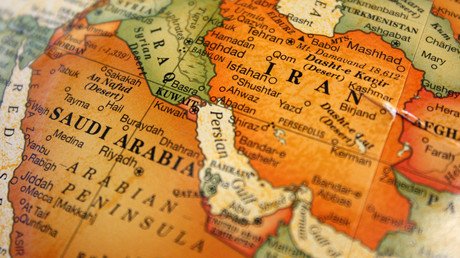Mexico denies deal to house caravan migrants while their asylum is processed in US
The incoming government of Mexico has denied earlier reports it had struck an agreement with the Trump administration to make it a “safe third country” for migrants stranded while their asylum claims are being processed in the US.
The plan reported by the Washington Post and unambiguously entitled 'Remain in Mexico' would have significantly changed US asylum regulations, which currently allow refugees to wait for the decision on their applications on US soil. The President's administration hoped that it would put an end to what Trump decried as a "catch and release" system, according to the WaPo.
"For now, we have agreed to this policy of Remain in Mexico," the report cites Olga Sánchez Cordero, Mexico's incoming interior minister said. No formal deal has been signed between Mexico City and Washington so far, as the new Mexican administration led by the President-elect Lopez Obrador will only take office on December 1. Apart from that, many details of the agreement "must still be discussed," US officials said.
After the news hit the headlines, Sánchez Cordero dismissed the report, saying that there was “no agreement of any type between the future government of Mexico and the United States.”
The politician stressed that under no circumstances Mexico will become a so-called “safe third country” for the hundreds of Central American migrants, noting that in this case the they would have to apply for a refugee status in Mexico rather than the US.
Under the reported agreement, any potential asylum seekers from Central America will have to wait in Mexico for their scheduled court appearance before an immigration judge as their cases are being processed. After that, they will be escorted to a federal courthouse by US officials but would have to return to Mexico again if the judge fails to issue a final decision on their case. They will be allowed to stay in the US only if granted asylum and will be sent directly to their home countries if rejected.
US Homeland Security reinforces border with Mexico as migrant caravans arrive pic.twitter.com/lONMdPwvqt
— RT (@RT_com) 22 ноября 2018 г.
Less than 10 percent of Central American refugees are eventually granted asylum in the US, WaPo reports, citing immigration statistics. However, as US courts are struggling to cope with a backlog of asylum cases, amounting to some 750,000, the applicants are now able to live and work in the US for years as their claims are being processed. US officials hoped that the new deal would drastically change this situation and decrease the incentive for the migrants to seek asylum in the US in the first place.
Mexico, however, sees the plan solely as a "short-term" solution and is concerned about becoming a US "waiting room" at a time when thousands of migrants bound for the US are already stranded in its northern border states.
"The medium- and long-term solution is that people don't migrate," Sánchez Cordero said, as cited by the Washington Post. "Mexico has open arms and everything, but imagine, one caravan after another after another, that would also be a problem for us."
Nonetheless, Mexico is also apparently seeking to use the situation as a boost for its own economy. Local business leaders are reportedly ready to offer jobs to the migrants, and officials say up to 100,000 jobs are available to Central American asylum seekers.
The president 'may not rewrite the immigration laws to impose a condition that Congress has expressly forbidden' – US judge #JonTigar on temporarily blocking #Trump's order https://t.co/T7HazYTPhH
— RT (@RT_com) 20 ноября 2018 г.
"We want them to be included in society, that they integrate into society, that they accept the offer of employment that we are giving them," Sánchez Cordero said. "That they feel taken care of by Mexico in this very vulnerable situation."
So far, however, the country looks far from an idyllic land of acceptance and inclusivity. The mayor of the border city of Tijuana, which currently hosts some 5,000 migrants from a caravan seeking to cross into the US, has recently declared the situation in his city a "humanitarian crisis." He also accused the government of leaving them helpless in the face of this challenge, adding that the city residents would not pay for the migrants, who are temporarily settled there.
The situation remains tense. Local residents clashed with police as they staged a rally against the migrants. The mayor also earlier threatened to deport the US-bound migrants.
On the other side of the border, US troops erected barricades and barbed-wire fences to prevent the migrants from illegally crossing into the US. Trump also authorized the border troops to use lethal force if needed.
Meanwhile, the new deal might, in fact, lead to a spike in illegal crossings into the US, with the number of such attempts prevented by the US authorities already reaching 60,000 last month, according to WaPo.
If you like this story, share it with a friend!














